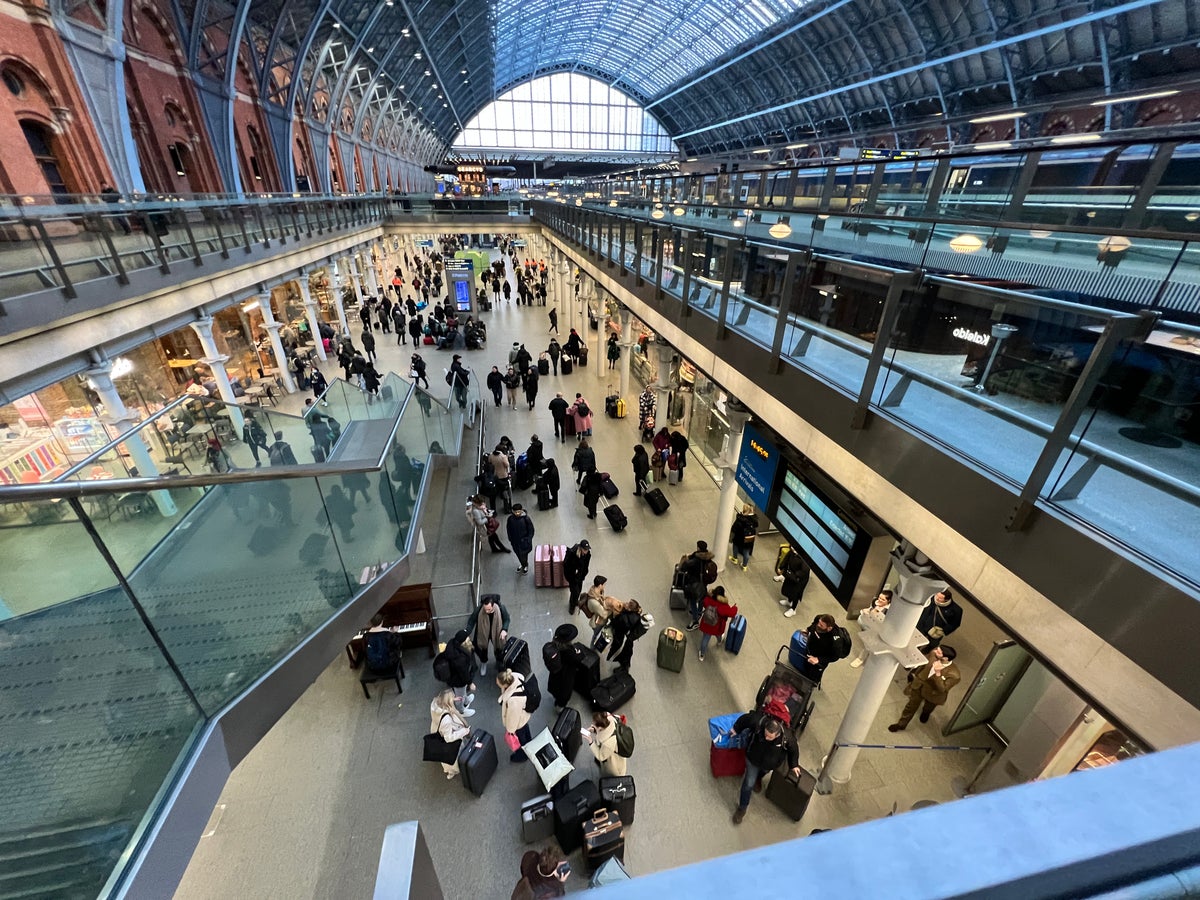
The Trans-European Race, taking place this week from London to Istanbul, has echoes of a mystery tour. The organiser, Wigan-based Lupine Travel, did not reveal the location of checkpoints dotted around the continent until a few minutes before the start at 10am on Saturday. Except for the first stop. The race director, James Finnerty, told me: “Ahead of time they’ve been given the first checkpoint, which is in Paris, because forcing people to purchase a last-minute Eurostar ticket would be exploitative.”
I checked: the only seats were in Business Premier at a one-way fare of £325. Space on the high-speed train from London St Pancras International to Paris Nord is a scarce and much sought-after commodity and the usual way in which such desirable items are allocated is by price. Good luck to Eurostar, which was arguably harder hit by the Covid pandemic – and absurd decisions on travel restrictions by governments on both sides of the Channel – than any other transport enterprise.
Booking for midweek, a day ahead, I can find London-Paris tickets for £149 one way – though only on the last train of the day. Almost all departures are priced at £195 or £218. In comparison, easyJet from Luton to Paris Charles de Gaulle airport and Vueling from Gatwick to Paris Orly are well below £100, even at the last minute (though with a meagre baggage allowance).
Demand is evidently red hot, while supply is constrained as a result of post-Brexit passport requirements. After the democratic decision to leave the European Union the UK government negotiated for British holidaymakers to become third-country nationals who require their passports to be carefully examined and stamped.
When the Eurostar terminals at London St Pancras International and elsewhere were being designed, no one envisaged such a situation. As a result, selling every seat – particularly on morning trains – simply isn’t possible without the whole concise complex grinding to a halt. Capacity is capped.
For a summer assessment of the operation and to ask about those fares, I grabbed literally the last available seat on a train from London to Paris. On arrival in the French capital, I sat down to talk with Eurostar chief executive Gwendoline Cazenave.
Since our last meeting, she says, the squeeze has eased thanks to increased staffing and improved eGates.
“When we met in January, we very much talked about the stations. it is still one of my major concerns. But since then, we have improved.
“We still have trains that we cap to make the travel experience OK and to make sure that trains are on time, but it’s much less.”
Good news, then – at least until the much-postponed EU Entry/Exit System is imposed, with its requirements for fingerprinting and facial biometrics.
But, I wondered, when will I be able to buy one of the £39 lead-in fares between London and Paris, Brussels or Amsterdam again?
“The first, really important thing – and I am really committed on this – is that our lead-in prices have not moved.
“London-Paris, it’s still £39. I really don’t want to raise our lead-in fares. Our costs are increased, energy costs have been multiplied by three. So yes, we have profitability issues, but we really want to keep these lead-in prices.”
The problem this summer, Ms Cazenave says: “We have more and more leisure customers and less and less business customers.”
The change in passenger profile means seats on summer services sell much earlier, pushing up fares for those of us who do not commit a long way ahead.
The handy “find lowest fares” button at eurostar.com shows, indeed, that £39 each-way tickets are available for September and beyond (you need to be booking a return trip to see them online).
As the summer holiday surge abates, there will be further good news: promotional fares offering a combination of Eurostar with Thalys trains to destinations such as Liege, Aachen and Cologne. The two high-speed operators are merging and smarter pricing is part of the plan.
“We want to keep the train affordable. As long as we can do promos, we do them. That’s really the mindset in which we want to be,” says the Eurostar CEO.
“Our project is a growth project.”







